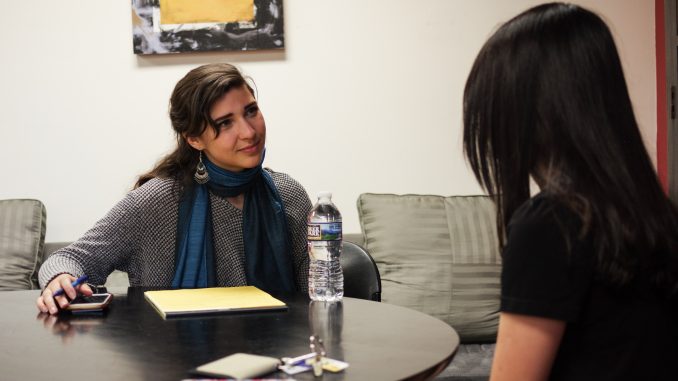
During her summer excavation in Romania two years ago, Victoria Szafara found dice made of bones from the second century. The dice became an important addition to a small Romanian museum’s collection of game pieces.
Szafara, a senior Greek and Roman classics and art history major, did excavations at archaeological sites every summer in college. She also worked at museums like the Philadelphia Museum of Art and the University of Pennsylvania Museum of Archaeology and Anthropology while school was in session. She decided to move to England to pursue a master’s degree in archaeology at the University of Leicester this fall.
“I keep coming back to archaeology,” Szafara said. “I still want to do it more.”
Her love for Roman culture prompted her to go to England, where many professors pursue archaeological research and provide more opportunities for excavations and other fieldwork. She said she also wants to study historical interactions between the British and Romans.
Hope Watson, a senior kinesiology major, also chose to move to England for graduate school this fall. Despite her major in kinesiology and minor in public health, Watson chose not to become a doctor like many of her classmates. Instead, next year Watson will study epidemiology, which focuses on the determinants of diseases, and biostatistics at the University of Cambridge.

“What’s attractive to me is to be the decision-maker in health,” Watson said. “Instead of going into clinical medicine, practicing and being face-to-face with people, I want to go into the technology aspect.”
Last summer, Watson traveled to Denmark and Norway to learn about health disparities among indigenous Europeans. She said traveling is “fundamental” to understanding the health care system on a global scale, rather than just a national scale in the United States.
Szafara said universities in England do not require as many exams as those in the U.S., which gives students more time to do research and finish their theses. But she added that British professors often offer less support to students, so most students work independently.
Taylore Roth, a senior political science major, plans to go to Nanjing University in China after graduation to study international relations. All of her classes will be taught in Chinese. As part of a program offered by Johns Hopkins University, she will spend a year in China before finishing her studies in Washington, D.C.
Roth, who has minors in Chinese and economics, said she developed a love for China at a young age. When she was in middle school, her parents bought her Rosetta Stone, a computer software for learning languages, and encouraged her to learn Chinese. She was put off by the difficulty of learning the language, but she decided to pick it back up during her last year of high school.
In college, Roth traveled to Beijing to teach English during the summer after her freshman year and spent her whole junior year in Chengdu, a city in China’s Sichuan province.
“[China] kind of chooses me,” Roth said. “I just follow the path.”
Studying abroad sounds “glamorous,” but there are challenges, Szafara said. She worries that no one will understand her Philadelphian attempt at a British accent, and she’s still trying to catch up with the culture, she said.
“I’m told that [the British] sense of humor is different from [the United States],” Szafara said. “They’re very sarcastic, which is terrible for me because I never understand sarcasm.”
For Roth, the challenges of living in China include pollution and the lack of amenities, she said, especially social media because many websites are blocked or heavily monitored. Still, she said it’s worth the opportunity to learn about the culture.
Watson said continuing her education abroad is an opportunity to better understand her studies outside the classroom.
“If you just go on vacation or to the tourist sites, you haven’t really tapped in that culture or understood the people there,” Watson said. “Studying abroad would allow you to stay long enough to leave a piece of you each place you go.”
Quang Do can be reached at quang.duc.do@temple.edu.
Editor’s note: Victoria Szafara wrote for The Temple News in 2014. She had no part in the writing or editing of this story.


Be the first to comment